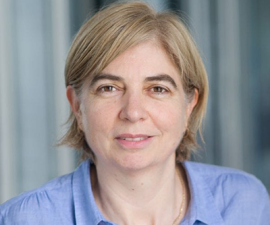

Research Bio
Adair Morse is a finance scholar whose research examines household finance, innovation, climate finance, financial intermediation, algorithmic finance, discrimination and law, and governance. She is a professor of VC and venture investing, creating and running fund-as-curriculum model of teaching startup seed investing. Her research is best known for her studies on fraud, payday loans, algorithmic discrimination, impact investing, and climate transition finance. Adair has extensive public service leadership. She has worked with the State of California in designing financial public-private partnerships for small businesses and with the Ministry of Finance of Norway as a member of the Expert Board for oversight of the $2 trillion sovereign fund, especially advising on innovation markets and sustainability. In 2021-2023, she served as Deputy Assistant Secretary for Capital Access at the U.S. Department of the Treasury, where she sat on the Industry Strategy Group of the United States, implemented $20 billion in venture financing and infrastructure programs, and worked on multi-agency initiatives to build economic, national, and climate security and to democratize wealth-building opportunities. She is the Hasler Chair in New Enterprise Development, Professor of Finance in the Haas School of Business at UC Berkeley, Faculty Director of the Sustainable and Impact Finance Initiative, and Fellow at the Berkeley Law School.
Research Expertise and Interest
household finance, climate finance, sustainable and impact investing, entrepreneurship, innovation, entrepreneurship and small business, pension asset management
Featured in the Media
UC Berkeley faculty report that the vast computing power needed to create new bitcoins has driven up energy bills for residents and businesses.
Just like households, local governments may view some services as necessities and others as luxuries.
The program is a public-private partnership involving governments, commercial banks, and twelve Community Development Financial Institutions (CDFIs) which are obligated to reach out to under-resourced communities and help businesses that might be too small or risky to qualify for normal big bank loans.
UC Berkeley faculty Adair Morse believes the best course of action would be to focus on supporting small businesses that are showing a capacity to recover, ones that are not necessarily doing spectacularly, but ones that aren’t doing half-bad.
